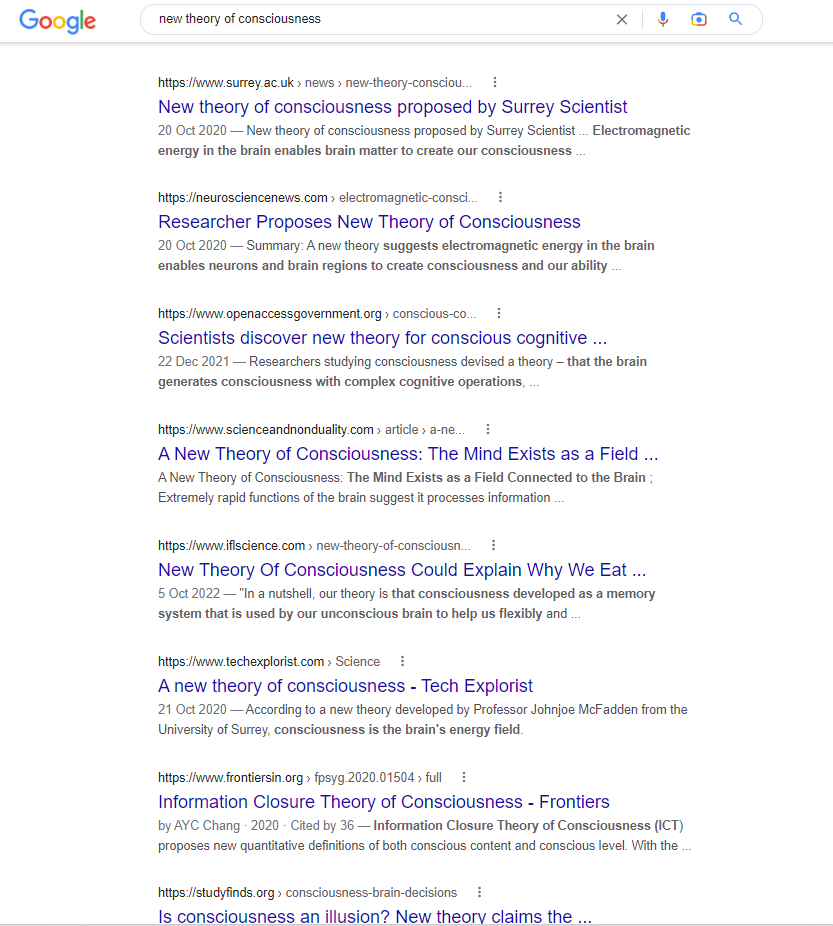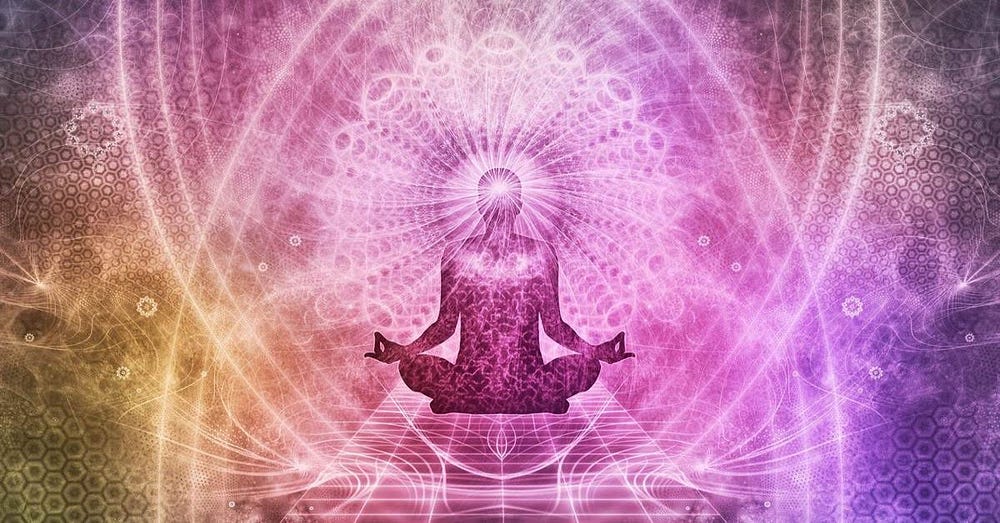It seems (at least to those who care) that there are six new theories of consciousness offered to the public before each breakfast. Indeed there are 14 Google pages of “search results” (with around 13 different links on each page) which refer to “a new theory of consciousness” (see here)… So what’s going on here?

There have been dozens — perhaps more — of books on consciousness published in recent years. More relevantly, many of these books use the words “A New Theory of Consciousness […]” in their titles.
So some readers may now ask how the word “new” is being used here. That is, are all these theories really new or are they simply brightly-coloured packages placed around old theories?
And even if they are new — so what!
Being new isn’t a big deal in itself.
For example, a theory that consciousness is the manifestation of the green gremlin field would be new, but only a few hip nerds or those intoxicated by woo would care about it. Indeed a theory can be new in all sorts of superficial or silly ways.

One problem with many of the books which offer us a new theory of consciousness is that their authors often fixate on what is only a single aspect of consciousness. They then go on to more or less ignore everything else to do with this subject. This is one reason why we have a large amount of sexy, titillating and pseudo-scientific theories of consciousness. That is, the authors concerned overplay their own angles on consciousness seemingly without realising that it may be precisely that: a single angle.

Added to all that is the fact that a lot of new theories of consciousness are wacky, pretentious and/or obscurantist. So perhaps the Slovenian philosopher Slavoj Žižek’s words on (particularly) pseudo-scientific obscurantism may be helpful here. (Ironically enough, obscurantism is something which Žižek has himself been accused of.)
Žižek places his cards firmly on the table when it comes to the people he calls “obscurantists”. More specifically, however, he’s talking about those who annex (or appropriate) quantum mechanics for their own “spiritual” projects. That said, this can just as easily be applied to most of the daily theories of consciousness discussed here.
Žižek writes:
“[] I am opposed as ferociously as possible to these obscurantist appropriations of quantum physics and astronomy.”
Žižek is even more explicit when he warns us about the
“New Age obscurantists appropriations of today’s ‘hard’ sciences which, in order to legitimize their position, invoke the authority of science itself”.
It can now be added that we all know about the Flat Earthers, New-Agers, Creationists, Intelligent Designers (at least the explicitly religious ones), spiritual idealists (or consciousness-firsters), etc. whose books are replete with mathematical equations and technical terms from physics, as well as lots of stats ’n’ graphs. In other words, we need to be careful when people arbitrarily drop scientific technical terms into their books. Or, alternatively, we need to be careful when such people include only certain sexy aspects of science (just about anything from quantum mechanics will do); though who then also ignore what could very well be far more scientifically important (or relevant) detail — especially when it comes to the legitimacy of their non-scientific (or spiritual) claims.
Definitions
So consciousness is a debate that’s hot and trendy. However, it’s also often (almost) pointless. The main reason for this is that many people are talking about different things when they talk about consciousness. What’s more, there’s often a conflation between what brings about consciousness and what consciousness is.
More relevantly, writers on consciousness use the word ‘consciousness’ in many different ways. Added to that is the fact that many authors never actually get around to defining the word at all. Of course it’s probably the case, it can be conceded, that they have their own tacit pet definitions deep within their minds. However, they rarely — if ever — explicate or articulate such definitions precisely or in any detail.
In any case, there have been countless definitions of the word ‘consciousness’ from the 19th century until 2022.
Many philosophers have been concerned with these many definitions of the word ‘consciousness’. Yet that has often been because they’ve had a problem with consciousness itself. That main problem with consciousness is its non-scientific status.
[It doesn’t help when philosophers use such phrases as “experience is a datum in its own right” (or “nothing is more real than consciousness”) because that itself doesn’t provide a definition or tell us what consciousness is.]
As a consequence, many definitions of the word ‘consciousness’ are both so multifarious and vague precisely because of the non-scientific (or, say, private) nature of consciousness itself. So perhaps if consciousness were as intersubjective a phenomenon as a cat or a neuron, then we wouldn’t have as many definitions — and so many vague and sexy theories before breakfast.












No comments:
Post a Comment